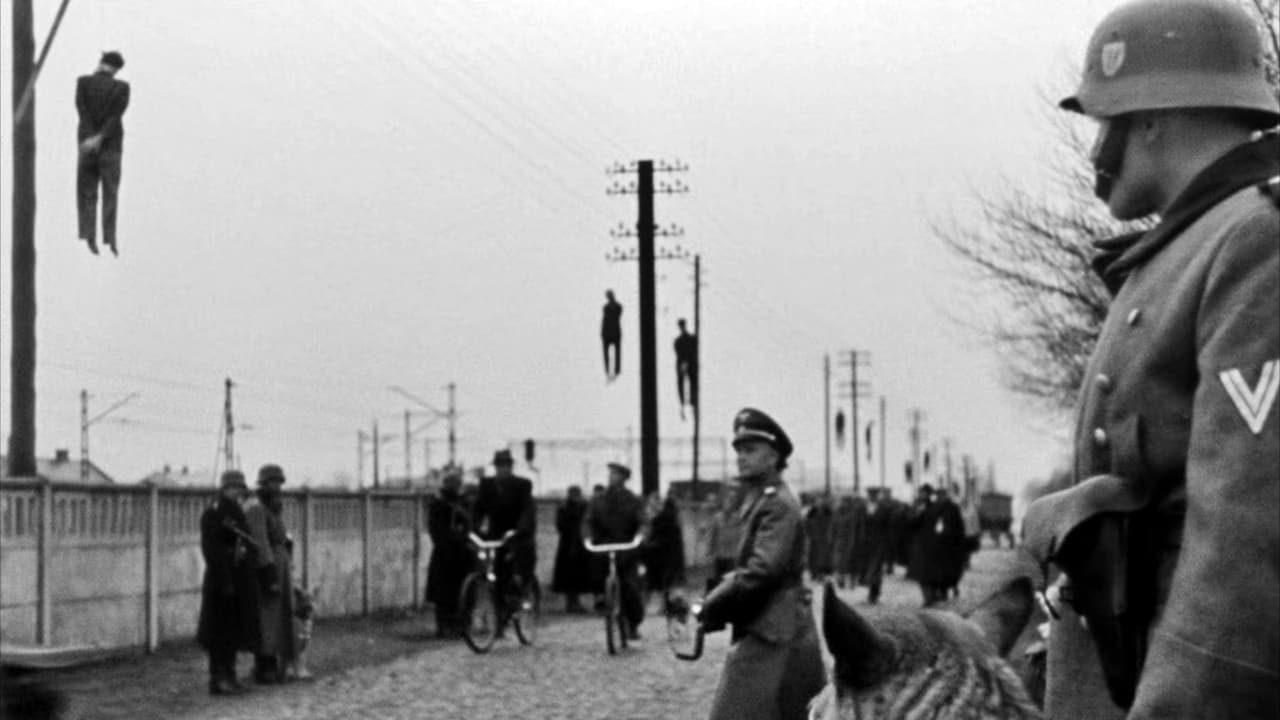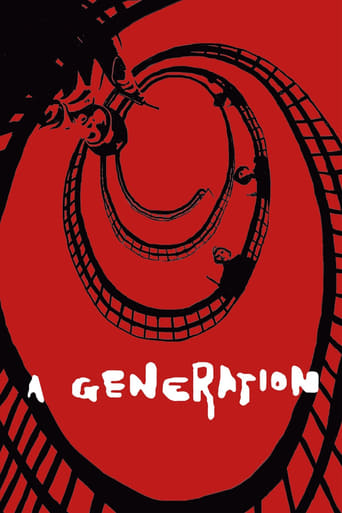Lovesusti
The Worst Film Ever
CommentsXp
Best movie ever!
pointyfilippa
The movie runs out of plot and jokes well before the end of a two-hour running time, long for a light comedy.
Ortiz
Excellent and certainly provocative... If nothing else, the film is a real conversation starter.
paloma54
If you have read some of the other reviews, you already have a fair idea of what this is about. Considering the miserable legacy left behind, Marxism is not something that I can consider a positive development. And the growing self-righteousness of the anti-Nazi Marxists is typical of an increasing number of Americans who seem to think that we need to try the Marxist ideas yet again.The acting in this film is really pretty terrible. All the time I was watching A Generation, I kept thinking I was watching a movie from the 1920s. The story line is flimsy, there is almost no character development, and frankly, I felt as if this was a piece of Soviet propaganda. I'll watch two more Wajda movies, but I'm hoping they will be a marked improvement.
Eternality
Andrzej Wajda's A Generation or Pokolenle is the great director's first feature-length film and is also the first installment of a 'War' trilogy that brought the world's attention to Polish cinema as never before. The two other similarly-themed films in the series are Kanal (1957) and Ashes And Diamonds (1958). These three films combined remains to be one of the finest collective works to come out of Eastern European cinema in the 1950s.A Generation tells the story of Stach, a wayward teen living in a slum on the outskirts of Nazi-occupied Warsaw. He works as a carpenter in a small, local factory making bed frames and doors, and earning a pay of paltry proportions. He is then introduced to an underground resistance group comprising of youths which is led by Dorota, a confident young woman who wants to fight for the freedom of her homeland. A true believer of Communism, Stach matures from a lazy kid living a life of emptiness to a leader of a patriotic cause worth dying for.A Generation opens with a wide panning shot that slowly swivels from a barren, quiet open field to a small village with joyfully loud children playing. Yet there is something disquieting about the shot. The stark photography induces a feeling that we may never hear these voices again. Wajda's filmmaking style is simple; he never indulges in fanciful camera tricks or long technically-demanding takes. Here he is focused on telling Stach's story with certain immediacy. Supporting characters are introduced and established with consistent pacing; Wajda allows each key supporting role to have enough one-to-one time with Stach so that an emotional bond is developed between them.Wajda has a strong sense of location. In the film's most powerful sequence, one of Stach's close friends finds himself separate from the group after they encountered Nazi resistance. Armed with a pistol, he tries to outrun the Nazis but ends up in a building with a spiral staircase. He climbs up helplessly, ducking sprays of bullets that seem to come from all corners. His pistol is now emptied but at the top he sees a door. Sensing salvation, he opens the door only to find a locked gate behind. A sharp ray of hope becomes a painful stab to the heart. Realizing his impending doom, he unwillingly jumps to his death.In only his first feature, Wajda has shown that he has what it takes to become a master filmmaker. A Generation may not feature the best in acting, but Wajda's careful direction behind the camera allows the characters to breathe life into Stach's story of sorrow. Wajda's realist, social dramas have not only become the singular voice of post-war Polish youths disaffected by their mournful past, they have also, in his later works, become a voice of a nation struggling for identity amid a thick haze of political and economical uncertainty.SCORE: 8/10 (www.filmnomenon.blogspot.com) All rights reserved!
writers_reign
Westerners like myself have at least two strikes on them when faced in 2010 with a film shot more or less half a century earlier under a regime which we in the West have never experienced. It begins very much in the vein of the Italian neo-realism school that began a decade earlier so that the first impressions are that Polish cinema was stuck in a stylistic rut but gradually it sheds that look and emerges as a movie in its own right. It is, of course, depicting events less than a decade old so presumably is authentic in that respect. For all I know there WERE groups of young Poles who became active in the Resistance at exactly the same time very much as the group here. For me it was difficult to become involved with the characters possibly because they were all and - with the exception of Roman Polanski who fails to distinguish himself here - and remain unknown to me, unlike say, the cast of L'Armee des Ombres. Nevertheless I will persevere with the other two - Kanal, Ashes and Diamonds - of the trilogy.
futures-1
"A Generation" (Polish, 1954): This is the first of a war trilogy by Andrzej Wajda. Photographed in rich black & white, "A Generation" is about the youth of Poland, who joined underground rebellions against the Nazis. They formed small "cells" (sound familiar?) of fighters, used pseudonyms, and seldom met with larger groups – for the sake of secrecy and safety. The photography is wonderful (the long opening scene is alone worth the price of admission), the acting is great to average (with a TEENAGED Roman Polanski in one of the supporting roles!), and the dialog gives insight into kids who must grow up overnight and become not merely premature adults, but calculating killers. Made less than a decade after the war, this film depicts the serious, accurate, and even on extremely rare occasion, lighthearted moments that made up their lives. "Kanal" (1957), and "Ashes & Diamonds" (1958) follow.

